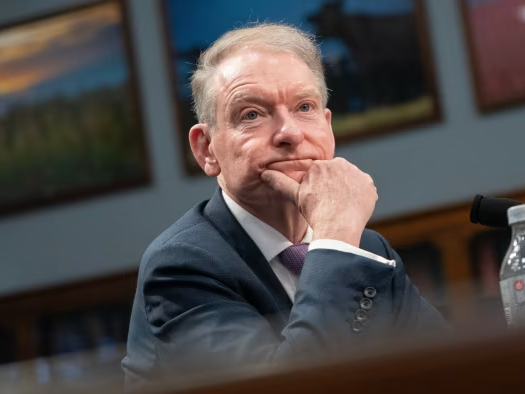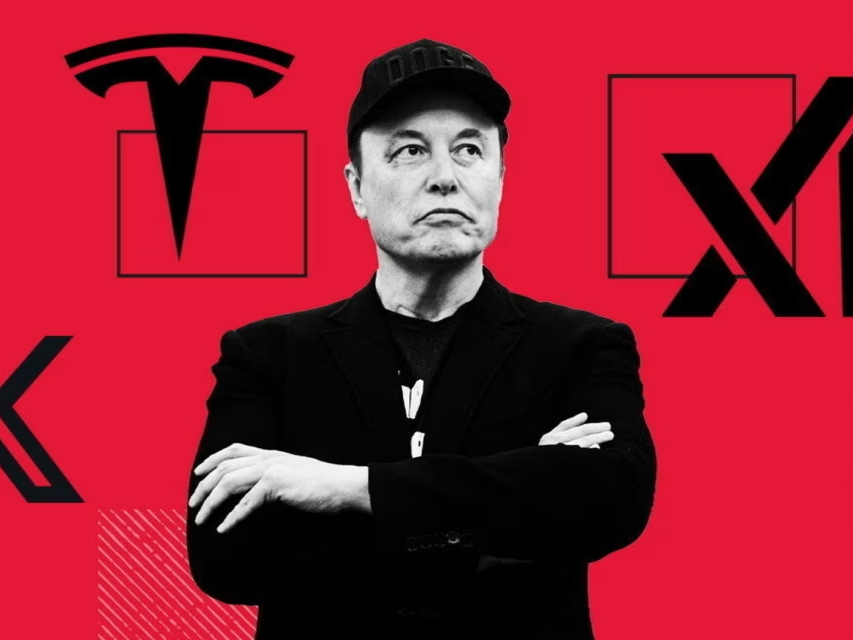| Welcome to your weekly update on everything board directors need to know to stay ahead, brought to you in partnership with Infosys. This week, we look at succession planning — and when to pick an insider over an outsider as CEO — hear from the top US financial watchdog Paul Atkins, and discover AI may not be killing jobs, after all. If you have comments, suggestions or news you think we should include, email me at andrew.hill@ft.com or newsletter editor Jonathan Moules at jonathan.moules@ft.com. Thanks for reading. Do insiders make better CEOs? |
| | |

GSK chief executive Emma Walmsley, who is being replaced by the pharmaceutical group’s chief commercial officer Luke Miels © AP Is it better to appoint an insider as your next chief executive or an outsider? Despite scores of studies, the answer still seems to be: it depends. UK pharmaceuticals group GSK just announced that insider Luke Miels, its chief commercial officer, will replace Emma Walmsley, who is stepping down after eight years in charge. It is good practice to search outside — as GSK did this time — but the rough academic orthodoxy suggests that picking an insider is the right decision for a company that is broadly on track. “CEOs promoted from inside the firm are less likely to trigger stock price crashes than CEOs hired from outside,” reports one typical study of US leaders over a 20-year period to 2017. On the other hand, boards should page an outsider when they want a major change. General Electric used to pride itself on building its own leaders, but when the conglomerate faced disaster in 2018, it picked outsider Larry Culp. He succeeded in salvaging value by breaking the group up. Walmsley, who announced herself as a “change agent” on arrival, has brought focus to GSK, spinning off its consumer health division and doubling research and development spending. She may not have convinced investors entirely, but she leaves a stable base on which Miels should be able to build. His unshowy appointment is also a sign that GSK has definitively ditched what a previous chair called the “Hunger Games” approach to succession planning. In 2007, GSK assigned projects to three CEO candidates, essentially declaring “let the best man win” (they were all men). Jack Welch of GE notoriously pitted three of his potential successors against each other, before stepping down in 2001. But succession can be messy at the best of times — disappointed aspirants to the top job often end up quitting. Turning it into a bloody gladiatorial showdown seems unnecessary. China has been at the forefront of every technology wave enabled by Nvidia’s graphics processing units (GPUs). The country’s sheer scale has magnified the company’s opportunities. Today that symbiosis is in jeopardy, however. Now artificial intelligence systems are being deployed en masse, reshaping everything from how we communicate and work to the way we fight wars, Nvidia’s chips have become a bargaining tool in superpower politics between China and the US. Nvidia is now watching the rise of Chinese rivals. How long can it stay ahead of this competition? 
 | Let the market decide how often companies report | | Paul Atkins, chair of the US Securities and Exchange Commission, writes that the government should provide the minimum effective dose of regulation needed to protect investors while allowing businesses to flourish. |
|  | Elon Musk hit by exodus of senior staff over burnout and politics | | Churn at the highest levels of Tesla and xAI has come amid disillusionment with the tech billionaire’s activism, strategic pivots and mass lay-offs. |
|  | JLR’s government loan guarantee should come with strings | | An essential condition of the British carmaker’s bailout ought to be that a second bailout won’t be needed, according to the FT’s Lex column. |
|  | AI is not killing jobs, finds new US study | | Research from economists at the Yale University Budget Lab and the Brookings Institution think-tank shows little evidence cutting-edge tech, such as chatbots, is putting people out of work. |
|
| | |
Trends on Executive Pay | Harvard Law School Forum Whether you call it compensation or remuneration, how — and how much — executives get paid remains a lightning rod for companies and investors around the world. This paper provides a rundown of the headlines and key trends relating to executive pay from around the globe. Biased Promotions | ECGI Although individual firms prefer unbiased promotions, biased promotions collectively benefit firms by weakening worker bargaining power. The model created for this research helps explain why bias-driven gaps in promotions and earnings may persist even in competitive markets. Route to the Top 2025: The ascent redefined — detailed survey insights | Heidrick & Struggles This research finds that companies generally take one of three approaches to CEO succession planning: those who see CEO succession planning as a top priority and act accordingly; traditionalists, who recognise its importance but allow other priorities to overshadow it; and those who simply do not prioritise CEO succession.
|